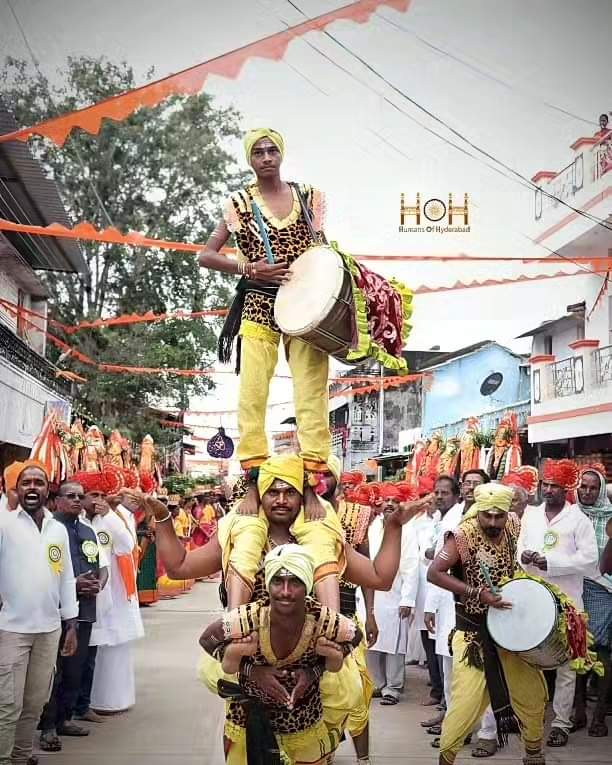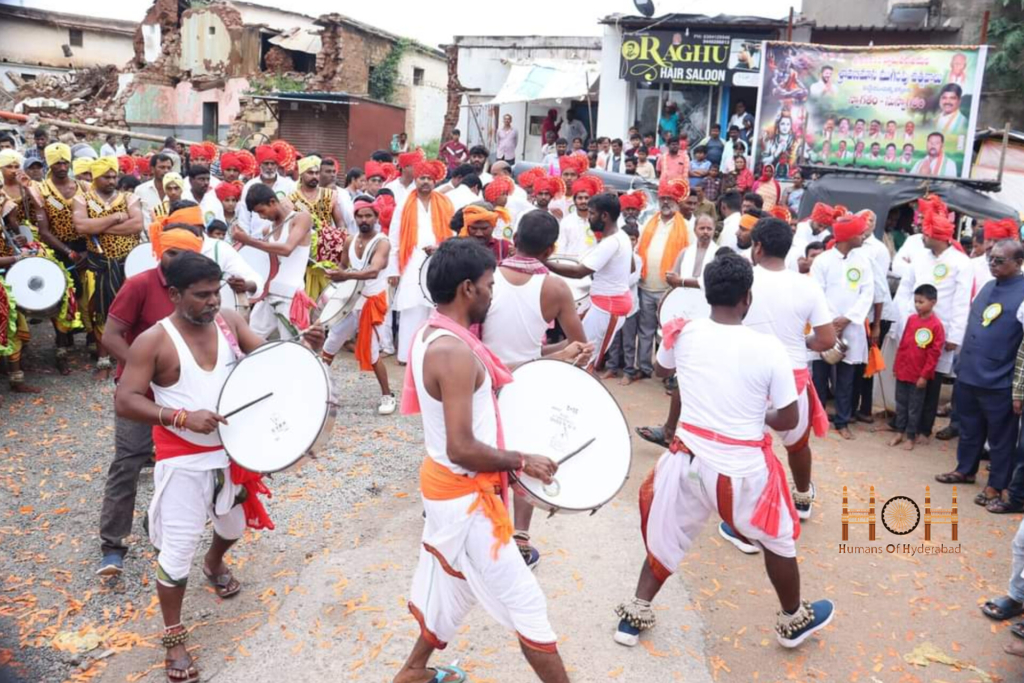“For generations, the Telangana Dappulu has been part of our ancestral traditions. From weddings to festivals and even during public gatherings or protests, its beat has echoed through our streets. It was something we grew up with, a sound that was tied to every important moment in our community.
But as times changed, the Dappu slowly started to fade from memory. With modern entertainment and music, people began to forget its value. Worse, it was often seen as something old-fashioned or even burdened with caste stigma. That’s when we knew we had to act.
With the support of the Telangana Language and Culture Department, we began performing at events across Telangana, bringing back the Dappu. Our mentor, Andhey Bhasker, has been leading this effort, and we are extremely thankful for the encouragement from Dr. Hari Krishna Mamidi sir, the director of Language & Culture, Telangana, who has been a pillar of support.
It’s not just about playing the Dappu. It’s about bringing our culture back to life, making sure the younger generation stays connected to these roots. The energy and pride we bring to performances are observed in cultural processions as part of Brahmotsavalu held in different places like Kosgi and Kodangal recently.
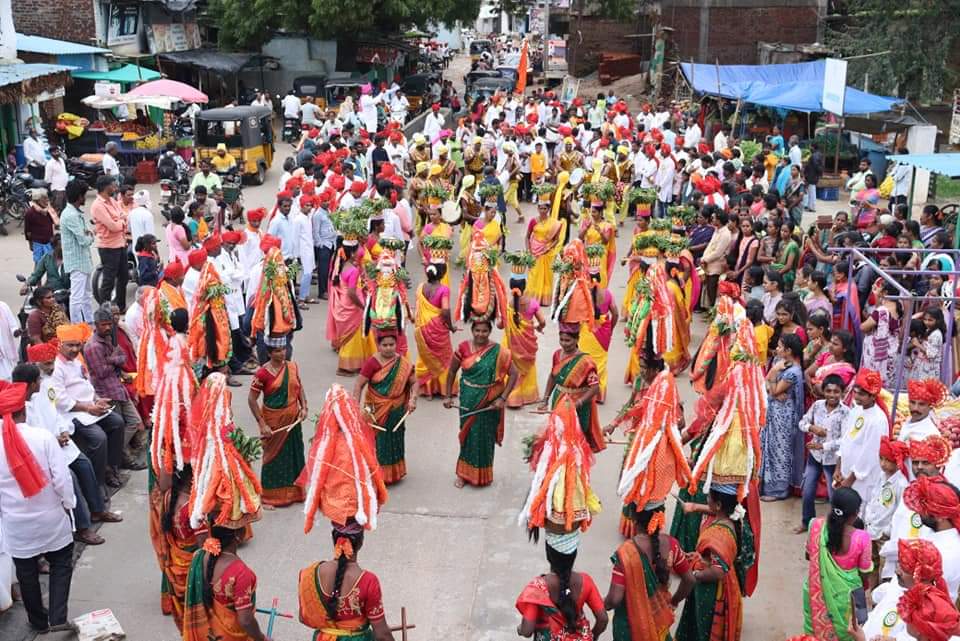
During these festivals, we perform in front of large crowds with the sounds of Dappulu, Bonala Kolatam dancers, Oggudolu artists, and Ghata Vinyasam performances.
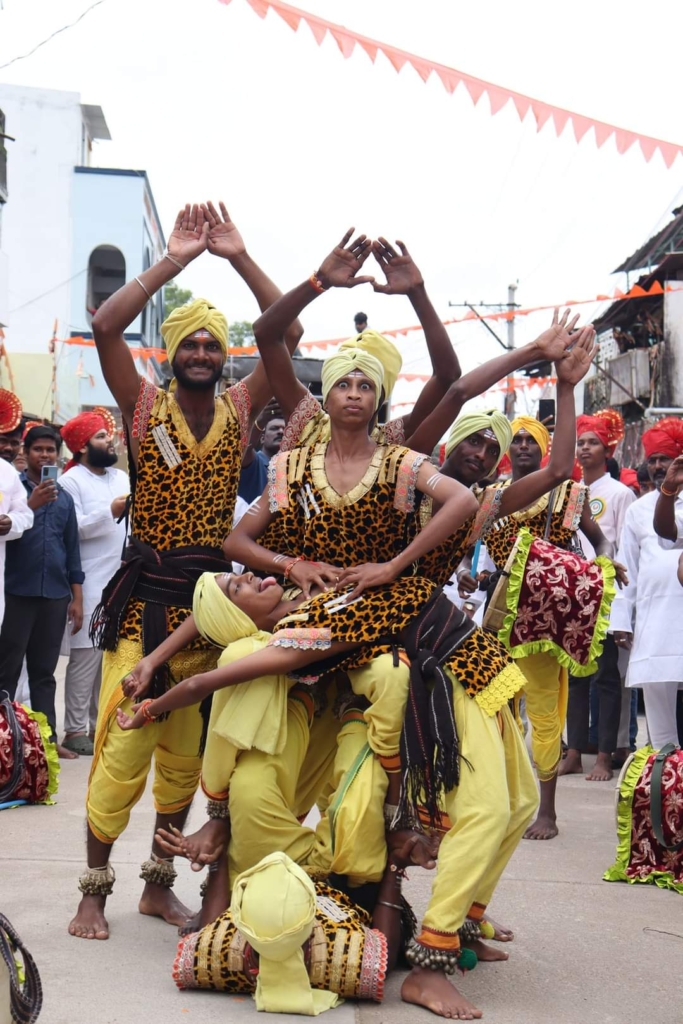
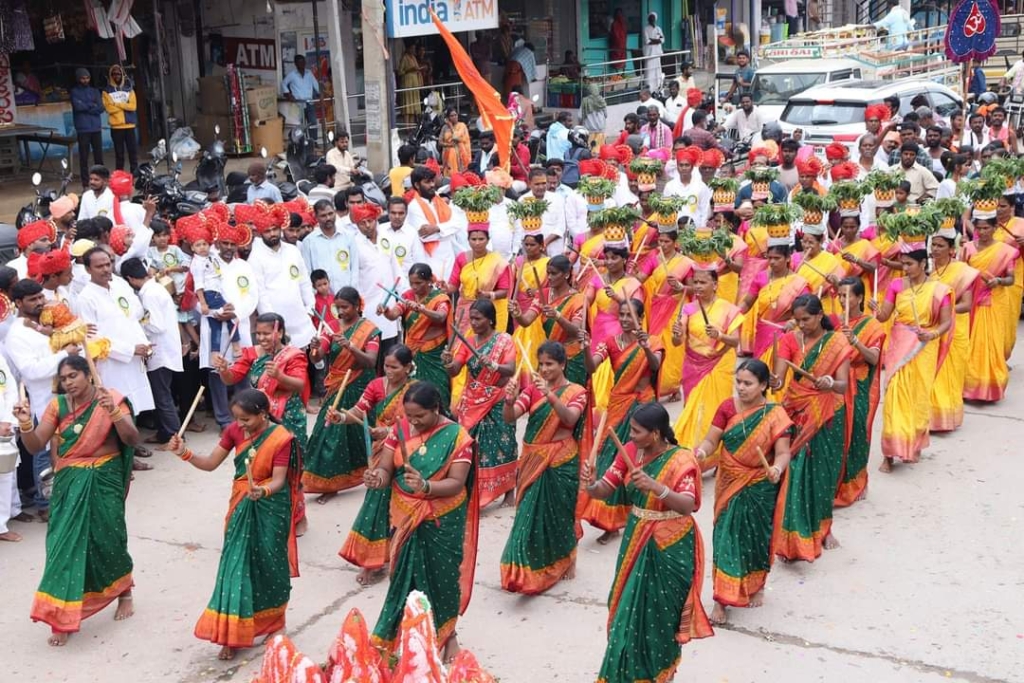
What’s really exciting is that people from all backgrounds, including women, are joining us to learn the Dappu. This was once seen as something tied to a particular group or caste, but now, it’s for everyone. Watching these new learners master the beats is a reminder that traditions don’t have to fade away – they can adapt, grow, and thrive.
We’ve even had the chance to showcase our Dappu performances internationally, and the response has been overwhelming. It’s heartening to see that this art form, which was once on the verge of disappearing, is now getting recognition, even on a global stage.
Our goal is simple: to ensure our ancestral traditions don’t just survive but thrive in the years to come.”
